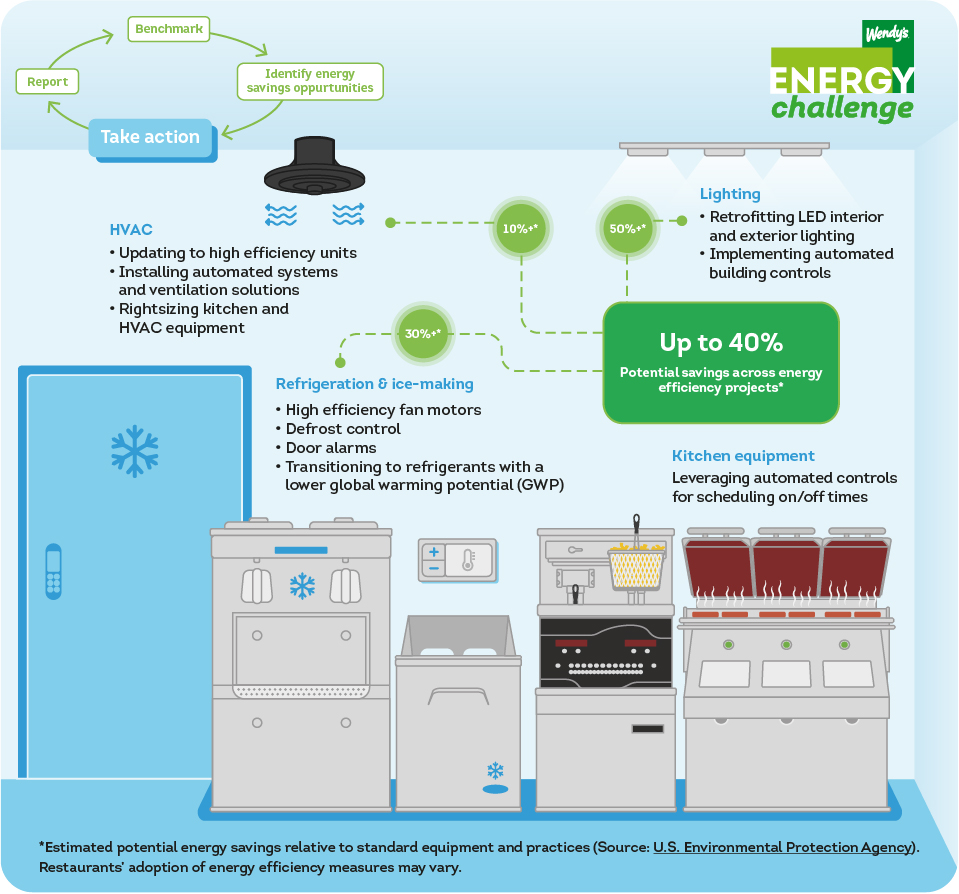Wendy’s strives to provide the quality food and experience we are known for, all while minimizing our energy footprint and identifying new ways to increase energy efficiency across our operations. Collaboration is critical to achieving emissions reductions across our global System.
Most of the emissions stemming from Company operations (Scope 1 and 2), as well as our value chain (Scope 3) emissions from franchise-operated restaurants, are associated with energy use.
Wendy’s new restaurant design standard, Global Next Gen, uses right-sized and more efficient building elements, such as lighting, special energy-saving windowpanes and HVAC, to decrease energy usage and costs.
In 2015, Wendy’s was among the first restaurant brands to sign on to the U.S. Department of Energy’s Better Buildings® Challenge – and the first restaurant company to include its franchisees in the Challenge. Using 2012 as our baseline year, we committed to reducing energy consumption in Company-operated restaurants by 20% per square foot by 2025. Franchised restaurants in the U.S. can also join the Better Buildings Challenge as part of their enrollment in Wendy's Energy Challenge. By participating in the Better Buildings Challenge, franchisees have the opportunity to obtain national recognition and technical assistance.
Wendy's Energy Challenge
Inspired by the Better Buildings Challenge, our own Wendy’s Energy Challenge (WEC) plays an important role in achieving progress on both our Scope 1 and 2 emissions reduction goal as well as our franchisee emissions goal.
Wendy's Energy Challenge, is a process to benchmark, measure and report energy consumption and track energy efficiency initiatives to achieve cost savings. By tracking their energy use, participating restaurants can identify opportunities to save energy and plan to take actions that will reduce their costs and emissions. Energy efficiency initiatives within franchised Wendy’s restaurants will contribute to the emissions reductions needed to achieve our Scope 3 franchisee goal.
At no cost to franchisees, participating restaurants can access resources, coaching and trainings on:
- common sources of energy inefficiencies
- behaviors, equipment and processes that reduce consumption
- benefits and barriers to new technology, electrification and renewables, enabling them to focus their efforts where they can to maximize impact.
